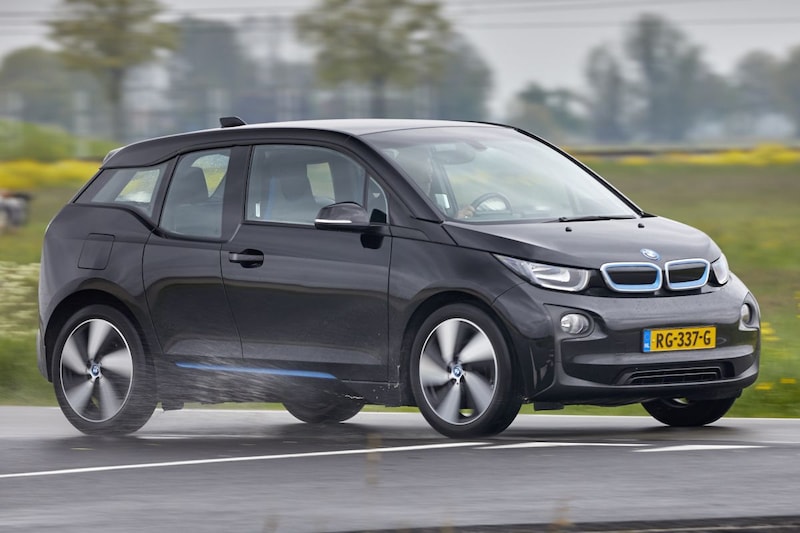‘Despite the sometimes sporty driving style, we have an average of 15.1 KWh/100 km’

This week in ‘so far comes’ we discuss a car that we don’t understand why we didn’t discuss it before. After all, several electric BMWs have already been reviewed, while we ignored the original. Time for a saving grace: that’s how far the BMW i3 has come.
As with many EVs, there is no such thing as the BMW i3. Over the years, the model was supplied with three different battery packs, with BMW indicating the capacity in a different way. The brand uses the unit ampere-hour instead of the usual kilowatt-hour. You could order the i3 as 60 Ah (22 kWh gross/18.1 kWh net), 94 Ah (33.2 kWh gross/27.2 kWh net) and later as 120 Ah (42.2 kWh gross/37. 9 kWh net). Anyone who knows something about electricity can use these values to calculate the voltage of the battery. And, perhaps unnecessarily: because we are talking about electric range in this section, we are not considering versions with a Range Extender (i3 REX).
Range BMW i3 120Ah
We start with the i3 120Ah, the battery with the most modern capacity and which also appears most often in user reviews. A car that showed a consumption of 17.1 kWh/100 km in our own double test against a Volkswagen ID3, with a corresponding range of 247 kilometers. Just slightly above average, because the combined average of ‘our’ users is 16.3 kWh/100 km. This means that the i3 120Ah can travel an average of 259 kilometers on a full charge.
A BMW i3S driver who scores slightly lower on average provides insight. “Despite the sometimes sporty driving style, we have an average of 15.1 KWh/100 km. We drive about 60% inland and 40% highway.” A second i3S driver scores a relatively high consumption of 18.3 kWh/100 km. His statement: “The average range that I drive with the I3S is around 230 km so far. This includes many highway kilometers.”
Consumption in the cold naturally increases while the range decreases accordingly, which is no different with the i3 than with other EVs. A rider who took the i3 to the North Cape shared his travel experiences. “Consumption 19 kWh/100 km, for comparison summer in the Netherlands 15 kWh/100 km. Cruising speed 50-70 km/h, temperature -10 to -28°C, roads stuck in snow and ice.” In short, extreme conditions, but they give a good idea of consumption in cold weather.
The i3 94Ah comes this far
No wild travel stories with the BMW i3 94Ah, but only down-to-earth Dutch figures. During our own test against two electric competitors, this i3 achieved a consumption of 16.8 kWh/100 km, with a corresponding range of 198 kilometers. It turns out to be a quite realistic value, because our users collectively only travel five kilometers further, thus breaking the magical limit of 200 kilometers. The corresponding consumption is 16.3 kWh/100 km. And for those who are curious about the range of the i3 with the smallest 60Ah battery pack? The only owner who wrote a review about it travels an average of 123 kilometers. That probably immediately gives away why this is the only user experience.
– Thanks for information from Autoweek.nl